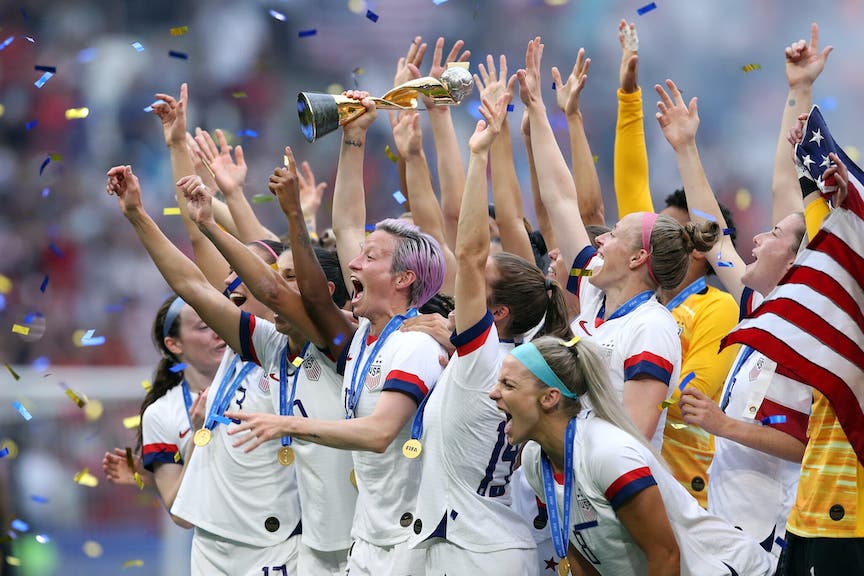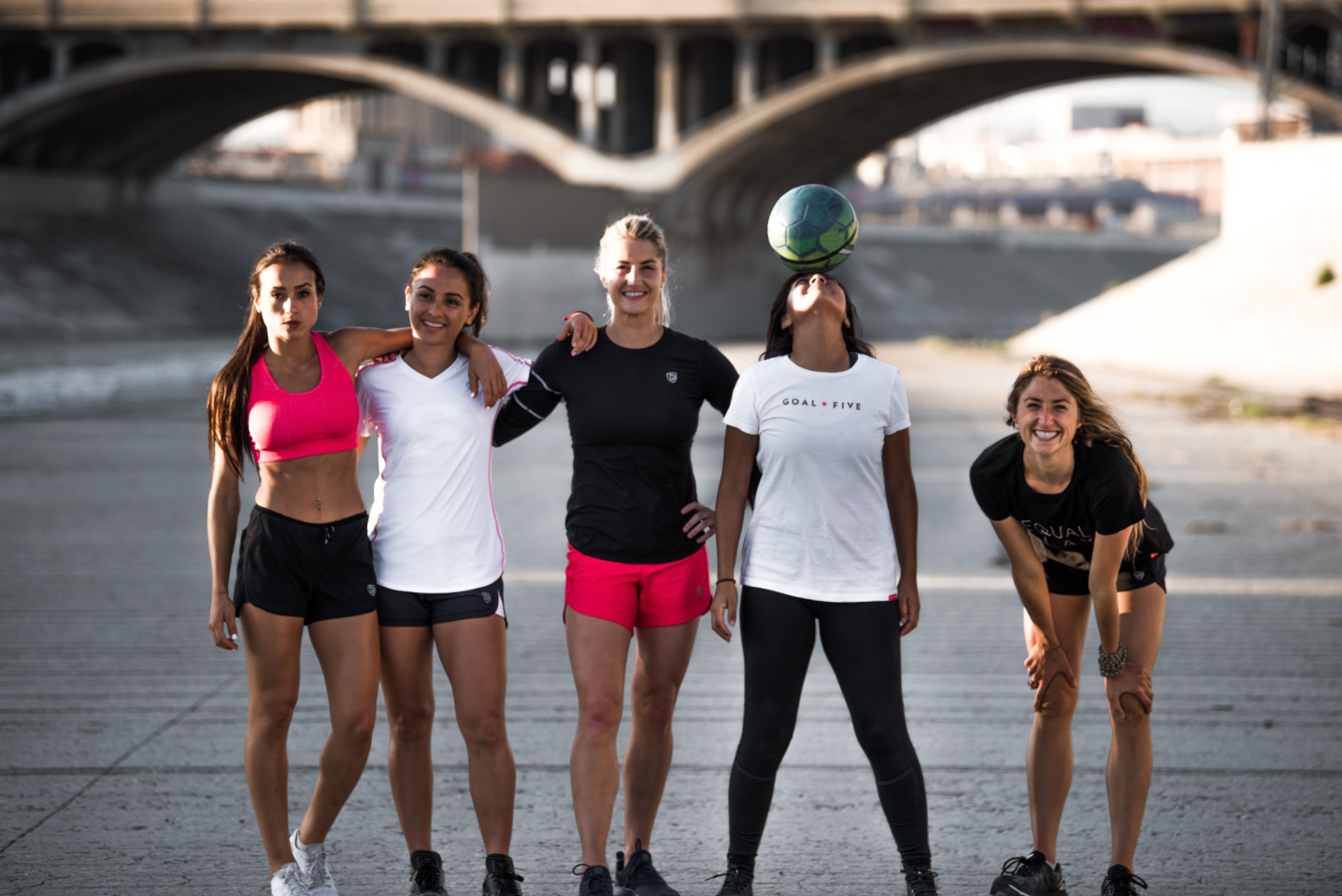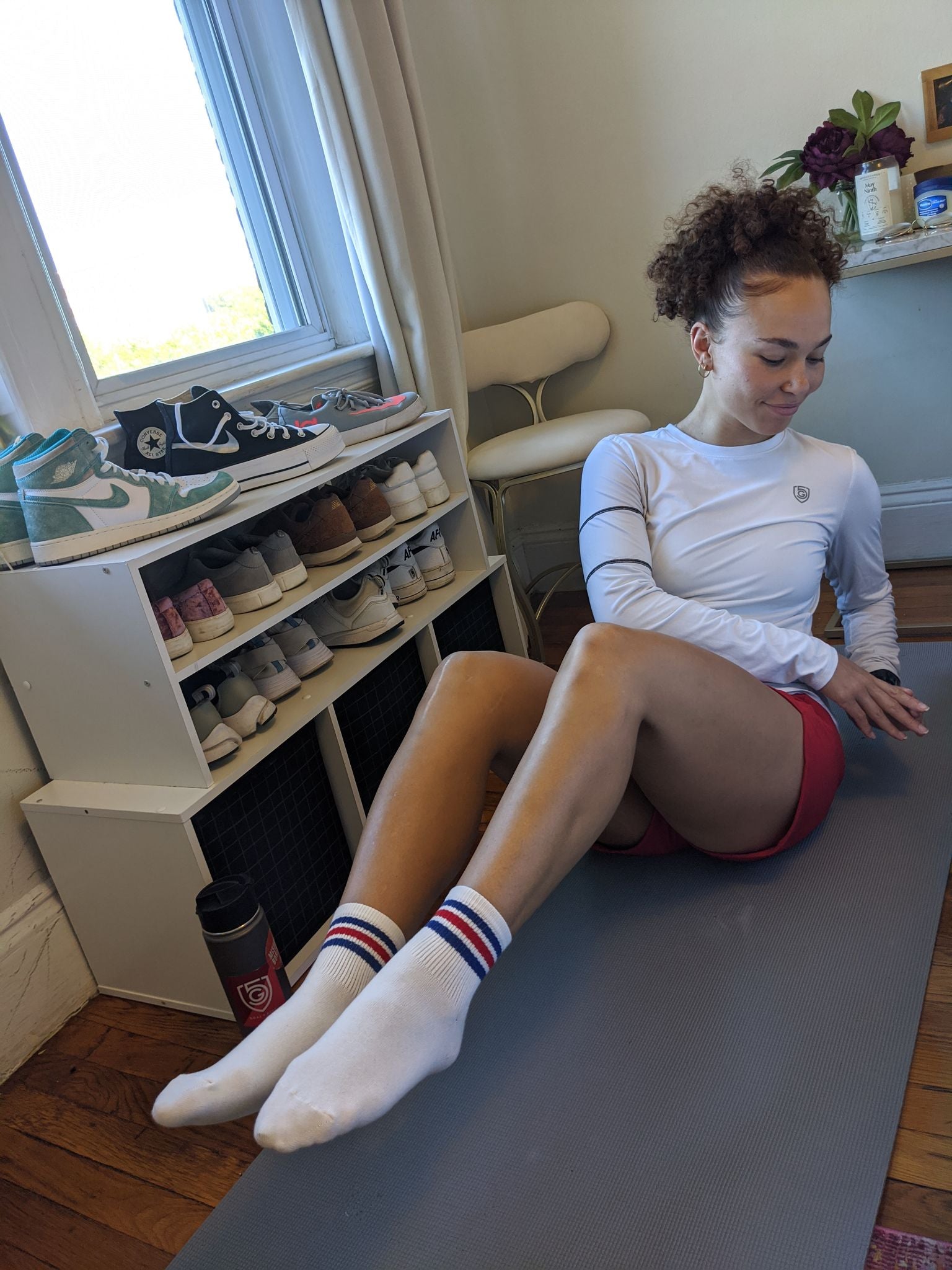Historic Equal Pay Victory for U.S. Women’s Soccer
On February 22nd, 2022, a six-year dispute between the U.S. Soccer Federation and the USWNT ended in a $24 million settlement.
The U.S. women’s soccer players are walking away with $22 million and — finally — the promise of equal pay. The team has spent decades being paid less than the men’s team, even when performing better and pulling more viewers, enthusiasm, and revenue in the process.
Reflecting on the U.S. Soccer Pay Gap Battle
To give some perspective to the pay disparity in question, the men’s soccer team shared $8 million in total when they lost the first round of the World Cup in 2014. The women’s team won the World Cup the following year, and received $2 million collectively.
Gaining Ground
In 2016, USWNT filed an unequal pay complaint with the Federal Equal Employment Opportunity Commission. They cited pay that differed from the men’s team due to the structure of base salaries versus bonuses.
In 2017, the women’s team struck a deal with U.S. Soccer that, in the players’ opinion, still did not equate to fair treatment.
The women’s team was still underpaid compared to the men, even when the USWNT won their second World Cup (2019) in a row, earning more support, ratings, and profits for U.S. Soccer. According to contract terms, if a female player and a male player for U.S. Soccer both won 20 national team matches, the woman would only make 38% as much as the man.
Regardless, the new compensation guidelines took effect in 2020, raising the women’s team’s salary cap by 19% to $650,000. This left 2020’s minimum U.S. Women’s soccer salary at $20,000, while the maximum base salary increased to $50,000.
The changes also adjusted the rules of player contracts and included allocation money of up to $300,000. That meant team operators could invest in current or prospective members of the women’s team in amounts exceeding the salary cap.
The Fight Intensifies
In March 2020, the U.S. Soccer Federation submitted a legal argument against the wage discrimination lawsuit. U.S. Soccer tried justifying the wildly disproportionate pay inequality for their highest performing and most lucrative team on the grounds of differences in “physical attributes” and “ability,” including “speed and strength.”
The federation debated that, somehow, playing for the men’s team (and losing) “requires a higher level of skill” than playing for the women’s team and winning two consecutive World Cups. To this statement, two-time World Cup Champion Alex Morgan retorted, “No. It’s a different skill.”
Shortly after, U.S. Soccer President Carlos Cordeiro stepped down and was replaced by former VP Cindy Parlow Cone. Meanwhile, the USSF admitted, “the jobs of the WNT and MNT players require equal skill, effort, and responsibility… they perform equal work.”
Yet, the following May, a judge dismissed the women’s soccer team’s case for $66 million in damages. The decision declared, though men stood to earn higher potential pay for similar success according to the respective CBAs for men’s and women’s soccer, women brought home higher pay overall.
But ultimately, the Equal Pay Act mandates equal pay for equal work.
U.S. women’s soccer appealed the decision with continued support from fans, the EEOC, and the President of the United States. At last, with this settlement including an equal pay agreement, the women’s team’s long fight has paid off.
What this Means for Gender Equality in Sports
Soccer, the most beloved sport in the world, has historically had one of the widest gender pay gaps in the sports industry, but pay inequality isn’t the only form of discrimination women athletes face.
The unrelenting U.S. women’s soccer players hope this settlement marks one step closer to ending sexism in the sports industry on an institutional level, with Megan Rapinoe calling out FIFA.
Indeed, this is a big statement within the sports world at large. It’s part of a growing movement, including the USWNT and women like Ada Hegerberg, the first woman honored with the Ballon d’Or, who protested her country’s unfair treatment of women’s soccer by leaving the Norwegian national team and the 2019 World Cup behind.
These badass women in sport are continuing to stand up for what they believe in. It shows female athletes — from young girls to pros — that fairness matters, that we’re stronger together, and that change is possible.
What’s the next big step towards gender equality in sports?
How are you celebrating this win for women athletes everywhere? Were you hoping for a bigger outcome? Which USWNT players’ voices have you amplified during this six-year struggle? What do you hope to see happen next for equality in the sports industry, and why?
Share your thoughts with us on Instagram @goalfive, and help us fight for more wins for women and girls in sports through our Equal Play advocacy.




Leave a comment
This site is protected by hCaptcha and the hCaptcha Privacy Policy and Terms of Service apply.